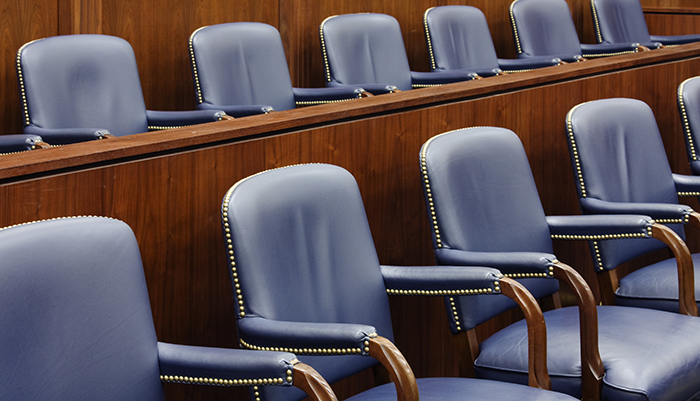As any experienced criminal trial practitioner will tell you, juries are crazy creatures. We don’t mean that the individuals who are selected for a jury are crazy as they, for the most part, are just like you and I. What we mean is that they, as a group, will come up with verdicts that no one sees coming. Think your client will be found guilty, they will acquit. Think your client will walk, he finds his way behind bars. Sometimes they find guilty on one charge and not on another when the two are almost identical in the facts needed to support the crime.
And all of this is legal. Juries are the ultimate finders of fact in any criminal trial (unless you have opted for a trial by judge). Their deliberations are secret. We do not have the ability or privilege to know their discussions, to know what they found important, to know what facts they disregarded, or how sympathetic or not they are to our clients. They hold all the keys and get to do it in secret so that they don’t have to suffer any blow back for their positions taken during deliberations.
Inherent with this role as fact finder is also the ability to completely disregard the law. This is so even though the judge will instruct them that they must follow the law. How can this be? It’s mostly a function of the secretive nature of the deliberations. Those outside the deliberations will never know which facts they found beyond a reasonable doubt. So, with any verdict of guilty, we have to believe they found the necessary facts beyond a reasonable doubt. The inverse is true with any acquittal; we have to believe they did not find the facts necessary to support a conviction beyond a reasonable doubt.
However, there are some cases where the facts seem clear cut and not in dispute in favor of a guilty verdict. Yet, a jury will come back with a not guilty verdict. The only legal inference from that verdict is that they found the evidence lacking. However, the parties and lawyers in the courtroom will know the facts were not lacking. This means the jury, for some reason, felt a conviction wasn’t fair. So, they exercised their inherent pardon power without even knowing that’s what they are doing (because they judge told them explicitly to follow the law). This is sometimes called jury nullification.
History of Jury Nullification
The earliest example of jury nullification that this author could locate goes back to 1670. There, in Great Britain, Quakers were charged violating a law that only allowed religious gatherings under the Church of England. The Quakers were obviously guilty of violating this law yet they were acquitted by a jury.
In another famous case, in 1735, journalist John Peter Zenger was acquitted in New York by a jury after he was charged for the crime of criticizing a public official. Once again, it was obvious that he was guilty but the jury simply didn’t like the law.
However, not all jury nullifications are created equal. In other words, sometimes it can be used for evil. During the civil rights movements of the 1950s and ’60, some all-white juries acquitted white defendants accused of murdering blacks despite overwhelming evidence of guilt.
More recently, it’s becoming increasingly more difficult for prosecutors to gain convictions for marijuana possession. Even in jurisdictions where possession is still illegal, a majority of citizens believe the drug to by relatively harmless and not worthy of criminality. In those situations where that occurs, they’ll acquit the defendant even though it was obvious that he or she possessed the substance.
What Can Your Attorney Do to Seek Nullification?
Nothing. Even with the long history juries acting in this fashion and it being recognized as a valid jury function, attorneys are prohibited from asking for a jury pardon or jury nullification. This is because we, as attorneys, take an oath to follow the law. If we were to ask a jury for a nullification, we are specifically inviting them to break the law and to disregard their oath as jurors. As an attorney, if you are going for a nullification, you have to hope your case is sympathetic enough that they will find their way there.
With that said, attorneys can nibble at the edges during closing argument. What I mean is that while we cannot expressly ask for a pardon, we can imply it. This is done primarily by playing up your case’s sympathies and emphasizing the unfairness that would result from a conviction. However, a judge or prosecutor who catches on to what you are doing very well could shut down your line of argument. It’s simply not an easy argument to make given that courts have expressly ruled that we cannot make the express argument.


